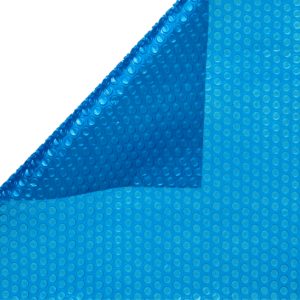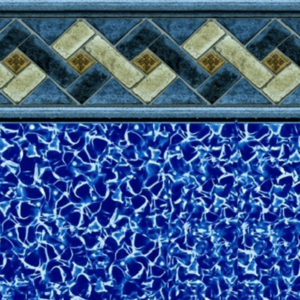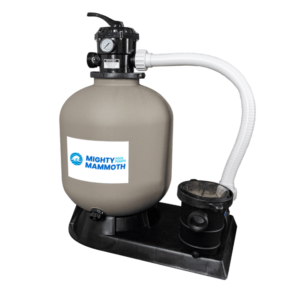
Pool School— How To Use Your Swimming Pool for At-Home Learning
Sure, your swimming pool is a great place to relax and have fun while social distancing during this COVID-19 pandemic, but it’s so much more than that. Pools are also a great place to learn about science, math, and more. With many schools opting to go virtual this fall and many families choosing homeschooling and e-learning while COVID-19 remains a risk, it’s more important than ever to keep kids learning and engaged. No matter what this school year looks like for you, we’ve put together some “Pool School” activities to help keep kids of all ages learning and having fun at home!
At-Home Learning for Youngsters (Toddlers-Kindergarten)
Pool School Science
- Think your preschooler is too young for physics? Think again! Teach your child about buoyancy by experimenting with which items will sink or float. Grab a few favorite (waterproof) toys to keep their attention and help them make educated guesses about each one, then observe! Bonus points if you tie it into a float-off with the most buoyant toys to improve your kid’s water-awareness and safety skills!
- Discuss which types of animals like water and why. Have your child pretend to be that animal while they’re enjoying the pool.
- Ask them where water comes from, then talk through the water cycle! Help them foster an appreciation for all things water while soaking up some sun by the pool.
Pool School Math
- Practice your numbers by counting the number of pool toys or floats you have.
- Learn about shapes by having your child discussing the shapes of your pool, toys, floats, and other items around your backyard. You can also search for different shapes within your pool liner pattern.
- Speaking of patterns, have your child draw a pattern that could be a new pool liner design! Don’t forget to share their creations with us, we’d love to see them!
Pool School Reading/Writing
- Have your child identify letters related to your pool (pool starts with p, water starts with w) or spell pool-related words as they are able.
- Read an age-appropriate book about swimming or water to your little one. Studies have shown the benefits of parents reading to their kids are numerous and it’s a great way to teach your little one more about swimming and water safety.
- Clapping and rhyming games are great reading readiness activities, and even more fun to practice pool-side!
Pool School Art/Music
- Teach your child about colors by pointing out various colors in the pool area and backyard.
- Have your child help you make fun pool signs and crafts to display around your patio area. When you’re hunkering down at home, this can be a great way to add some extra color and fun to your backyard.
- Create and sing fun rhymes or silly songs that have to do with swimming.
At-Home Learning for Grade School Students
 Pool School Science
Pool School Science
- Have your child shadow you while you’re testing the pool water and explain the importance of proper chemical handling, protective gear, and what the various chemicals do. Even if your kid is too young to handle the pool chemicals, he or she can still learn a lot just from observing.
- Discuss the different forms of water — solid, liquid, and gas — and see if you can find or create examples of each.
- Use a thermometer to monitor and track the pool’s temperature and see how various factors, such as the pool cover or outdoor temperature, impact it.
- Discuss different types of bodies of water and what makes them unique. How does a lake differ from your pool?
- Explain solar energy and how it heats the pool. You can also discuss how various solar products, such as a solar pool cover, use the power of the sun.
Pool School Math
- Have your child help you measure your pool. Talk about terms like radius, diameter, volume, and circumference as appropriate.
- Teach your son or daughter about various measurements by pulling out the measuring cups and having him or her measure specific amounts of water from the pool. How many ounces make a cup? How many cups go into a gallon?
- Practice addition, subtraction, multiplication, and division skills using pool toys, like dive sticks, as examples.
Pool School Reading/Writing
- Have your child spell pool-related words. Increase difficulty based on their age-level and abilities.
- Discuss nouns, verbs, tenses, etc. by using swimming and pool-related examples.
- Have your child write a story about why they love the pool or recapping what they learned during their pool lessons.
- Have your child write a letter to a friend or family member inviting them to a pool party once the quarantine is over.
- Have your child read an age-appropriate book about swimming out loud to you. It’s a perfect activity to wind down after an afternoon in the pool.
 Pool School Art/Music
Pool School Art/Music
- Discuss various patterns, colors, and more advanced techniques, like depth and shading, found in your pool liner.
- Have your child draw and color their own pool liner design. Share your child’s creativity with us!
- Have your child help you decorate your deck and patio area with fun crafts. Sidewalk chalk and window markers are a great way to make your backyard feel more colorful and festive for your “quarantine-cation.”
- Create and sing fun rhymes or silly songs that have to do with swimming.
At-Home Learning for Middle/High School Students
Pool School Science
- Have an impromptu chemistry class where you discuss your pool’s water chemistry. You can use your testing strips to have your teen calculate things like pH levels, alkalinity, chlorine levels, and more. Have your teen test the water regularly and document his or her findings.
- If you have a microscope, have your child look at pool water samples in comparison to other water types (like rain water, water from the faucet, or a drop from a fish tank, etc.)
- Do some experiments regarding light and sound waves and discuss refraction (the change in direction of a wave passing from one medium to another). How do depth and other factors impact it? Pull out some mirrors and magnifying glasses too.
- Discuss the physics behind swimming. What do divers and professional swimmers do to increase speed? What happens to the water’s movement when you dive or cannonball?
 Pool School Engineering
Pool School Engineering
- Teach your son or daughter about engineering and construction by discussing how the pool and plumbing system work together. Highlight accessories like the pump and filter system and explain how it works.
- Have your child help you open your swimming pool for the summer
Pool School Math
- Have your child calculate the volume and circumference of your pool and the buoyancy and density of various objects.
- If they’ve been tracking water levels and doing other science-related activities, you can have your teenager develop and solve equations based on their findings.
- Have your son or daughter track and calculate the velocity of other family members jumping, diving, or racing across the pool.
Pool School Reading/Writing
- Start a pool-side book club! Have your teen read a book about swimming and write you a book report or host a family discussion. There are tons of books that span across genres and there’s no better place to read than poolside.
- Have your teen keep a journal while off of school to keep his or her writing skills sharp. Encourage your son or daughter to share some favorite pool activities and highlights.
- Compile a list of writing prompts and challenge your teen to a weekly story competition. Gather as a family to hear each week’s masterpiece by the pool!
Pool School Art/Music
- Have your teen capture your family’s swimming adventures and turn the photo and video clips into creative montages using smartphone or computer editing apps.
- Work with your teen to create the ultimate poolside playlist with his or her favorite songs and musicians. Talk about the various musical styles and cultural influences.
- Have your student recreate one of the photos mentioned above via drawing or create a portrait or collage of a famous swimmer he or she admires.
Pool School History
- Talk about the history of swimming pools. Man-made pools for bathing and swimming, have been said to go back to at least 2600 B.C.
- Research and discuss famous swimmers and divers, like Michael Phelps, Katie Ledeck, and Mark Spitz.
- Dive into your family history! Talk about your favorite summer memories, and what summers were like for older generations. Bonus points for doing digital-interviews with family members and asking about their summers as kids, swimming memories, etc.!
We hope this gave you some good ideas on how to turn your pool into a fun classroom space for your kids. Of course, health and sanitation are super important during this time — and LinerWorld is committed to keeping your pool and your family happy and safe. Nows the time to stock up on the latest pool products and accessories — like pool liners, floats, and covers — to keep your pool in tip-top shape the rest of this season and beyond!



